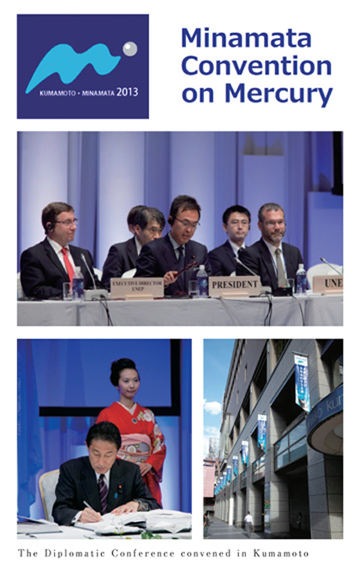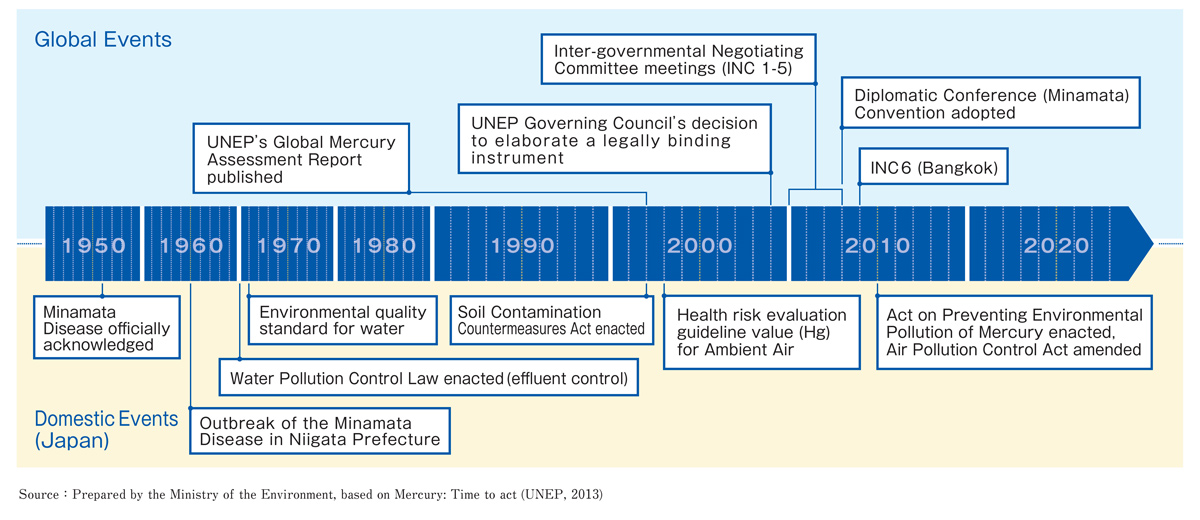Health & Chemicals
Process of Developing the Minamata Convention on Mercury and Contribution by Japan
Discussions at the Intergovernmental Negotiating Committee (INC)
Followed after the decision of the UNEP Governing Council in 2009, the Intergovernmental Negotiating Committee (INC) initiated the negotiation process in 2010 toward the development of an international instrument on mercury. Japan has actively engaged in the negotiation, serving as the coordinator for the Asia-Pacific region and hosting the INC2 session in Chiba in January 2011. At the INC5 session held in Geneva in January 2013, Japan proposed to hold a diplomatic conference for the adoption of the instrument in Minamata and Kumamoto, Japan. The INC Chair proposed to name the international instrument under negotiation the "Minamata Convention on Mercury," which was adopted unanimously.
Outline and outcome of the Diplomatic Conference of the Minamata Convention on Mercury
In October 2013, the Diplomatic Conference of the Minamata Convention on Mercury and the relevant meeting were convened in Kumamoto and Minamata for the adoption and signature of the Convention. More than 1,000 delegates including government officials from 139 countries/regions participated in the conference, and 92 countries (including EU) signed the Convention. At the conference, Japan expressed its intention to support developing countries' efforts toward the early entry into force of the Convention through the action titled "MOYAI* Initiative". Governor of Kumamoto prefecture stated "Mercury Free Declaration" to take leading actions at municipal level. At the opening of the conference, a ceremony was held in Minamata. The participants visited the Minamata Disease Municipal Museum, attended the Memorial Cenotaph for Minamata Disease Victims for offering flowers and the memorial tree planting, and interacted with Minamata citizens and Minamata Disease patients.
*Japanese term 'Moyai' literally means a bowline rope mooring boats together, it also refers to the cooperative works in local communities

